Centenary Celebrations
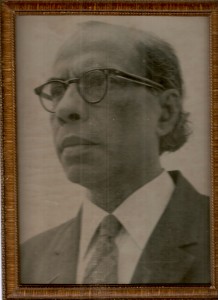
Teachers are the only true icons when institutional histories of educational institutions are being penned and in the annals of IIT Bombay’s own history, one educator who would stand tall in any wall of fame is the legendary Prof N R Kamath of the department of Chemical Engineering.
Prof N R Kamath, affectionately called NRK by one and all, was a man with diverse interests, versatile in various fields be it polymer technology or chemical engineering, history of technology, Kannada literature or technical education. Widely respected and admired by his colleagues and students alike, NRK was an iconoclast and an institution on his own. He had a profound influence on his students both at Bombay University and later when he joined IIT Bombay. The only ‘HoD for life’, he served as the Head of Chemical Engineering department from 1959 till his retirement in 1974. He was also the Deputy Director of the Institute from 1960 to 1966. His influence on the formative years of IIT Bombay and the Chemical Engineering profession in India was deeply felt by one and all. Students of IIT Bombay from those years will particularly remember him for his brilliant lectures on “History of Technology” given to all fresh undergraduates. NRK was a living example of all that stands for excellence of the first order in the academic profession.
2014 is the year of the birth centenary of this amazing teacher and to honour his memory, Fundamatics dedicates the lead section of this edition to drawing a biographical sketch on his life. To quote Plutarch, that great 1st Century biographer of notable Greeks and Romans, we hope “to not [just] write history but lives” and “arouse a spirit of emulation”. The editors would like to inform alumni that an initiative has been set up to launch a chair professorship in his memory and you can find out more about this initiative and support it by visiting the ‘Giving Back’ page of our website www.iitbombay.org. or by clicking the link :http://iitbombay.org/giving-back
Queenbee
N R Kamath : An Iconoclast and an Educator
To all the readers of Fundamatics who have turned to this article, we begin by asking you a question—“How many of you have had a teacher at any level of your education who made you more excited to be alive, passionate about what interests you, and more determined to excel in it than you had ever dreamed?”
L to R 1) Prof T. S. Raghunathan 2) Prof P S Murthy3) Dr Mahajan, 4) Dr G S Narasimha murthy, 6) NRK 7) Prof. Samir Sarkar
Say the name of that teacher to yourself and take a moment to reflect on what that teacher did for you before you proceed.
The chief protagonist of this biographical sketch, Prof N R Kamath, may or may not have been your personal favourite, but captured in his story is the timeless celebration of a good educator—one who leaves a permanent impression upon the taught. And in the recounting of his tale we hope to celebrate him and all other similar educators who have made a difference to our lives.
Born on September 8, 1914, Narayan Rangappa Kamath hailed from Mulki, a small town on the banks of the river Shambhavi near Mangalore in South Kanara district of Karnataka State. He was the youngest of seven children, five boys and two girls. One of his sisters, Bhavani, a school teacher and a remarkable woman, had a profound influence on the formative years of her youngest brother’s life.
NRK completed his early education in Mulki and his SSLC from Government College, Mangalore in 1930 with high credits. He could not gain admission to the much coveted Presidency College, Madras since admission at that time was also dependent on religious consideration and young Narayan despite his excellent results, belonged to the wrong constituency. He moved to St Xavier’s College, Bombay where he completed the B.Sc. course in 1934 with a unique distinction of securing 100% marks in Chemistry, a record unequalled in Bombay University for the next 40 years.
NRK resigned from his position at UDCT to take up the post of Professor and Head of Chemical Engineering department at IIT Bombay on 2nd March, 1959 where he continued till his retirement on 30th September, 1974.
There were many other firsts to his credit as well. He joined Bombay University’s Department of Chemical Technology in 1934—the first batch of the B. Sc. (Tech.) in Chemical Engineering—and was among the few students who graduated with First Class Distinction in 1936. He was also among the first alumni who would later be appointed as head of a Section in the department. But lest we march ahead too fast let us return to the story as it unfolded.
NRK was awarded the coveted Nathubhai Mangaldas Scholarship by the Bombay University for higher studies abroad after his graduation. He joined University College, London where he successfully completed a post graduate diploma course in Chemical Engineering before commencing his doctoral research work under the guidance of Prof H E Watson on the ‘drying of pigments’.
Then disaster struck in the guise of the World War II. The laboratory where he was working was shut down in 1939 and his thesis work was interrupted. NRK took a temporary job at the London Shellac Research Bureau hoping that his laboratory would reopen. But as the war situation worsened, the lab was completely bombed out destroying his work and ending all his hopes of a doctoral degree.
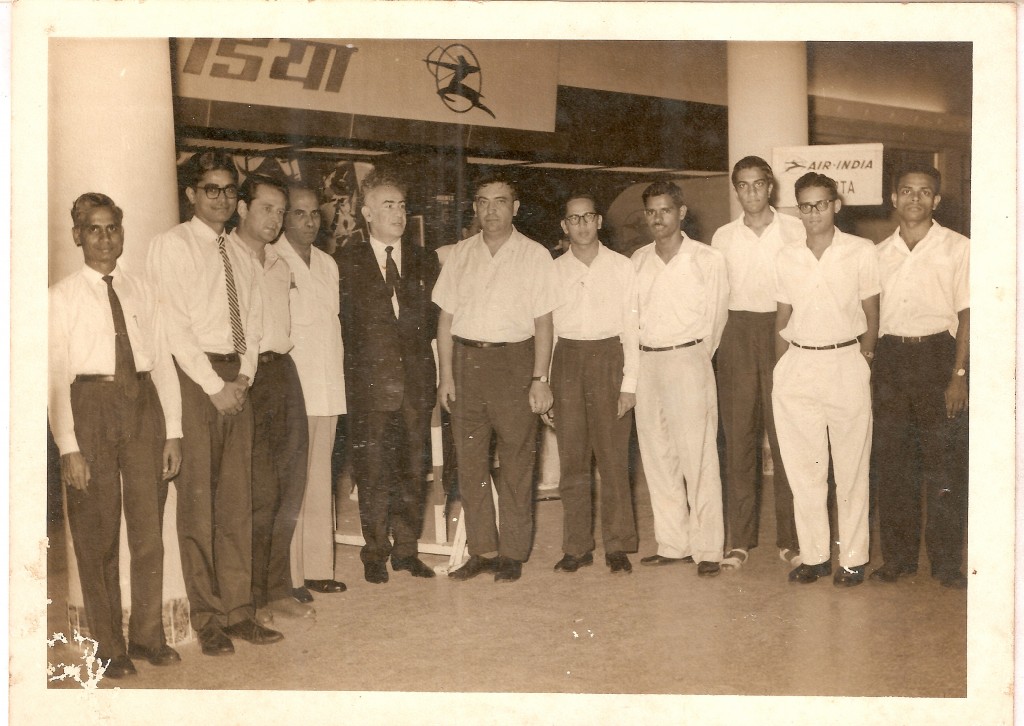
In an interview with two of his students, R V Raghavan and R K Marphatia, NRK mentioned the Blitz in London as the most outstanding situation in his life: “when everything I had worked for until then was blasted away… if I have maintained my sanity then it was entirely due to the person who later came to be my wife”. Thus entered on the scene Ruzena, the second lady who was to have the most significant influence on his life.
NRK met his bride in the spring of 1939 at an Opera called Bartered Bride by the noted Czech composer Smetana which was being enacted in Covent Garden. The chance encounter soon developed into a deeper bond as they continued to meet through 1939 and 1940. By this time NRK had taken up a long term appointment with Shellac housed at the School of Mines in Edinburgh. But this meant that the young Ruzena could not enter Edinburgh as it was considered a protected area then. Thus in 1942, a year in which things were at their lowest ebb as far as the Allied war efforts were concerned, the two decided to take the plunge and got married.
His work during the years 1940-46 at Shellac resulted in as many as 18 publications covering many aspects of Lac utilisation.
After the war, NRK got many attractive offers to settle down in U.K. and at the same time he was offered an appointment as Sir Homi Mehta Reader in Technology of Plastics, Paints and Varnishes at his alma mater. The final decision was influenced by his wife who always knew that NRK wanted to be of use to his country. It was she who convinced him that rather than pursuing acclaim on a personal plane, he would be more useful to his country if he returned to India. NRK thus chose the position in UDCT and returned to India in 1946 to join UDCT, Bombay.
There by 1949, he started separate courses in plastics, pigments, paints and varnishes and laid firm foundations for the PPV laboratory. In 1952, NRK cooperated with Major Hammond, R V Raghavan and others to set up the Colours Society which built excellent relations with the Chemical Industry. In 1958 Prof. Kamath was appointed Professor of Polymer Technology in the Department of Chemical Technology but this was a year which marked another turning point in his life.
Shri G P Kane, his senior colleague in UDCT, shared a rare insight on NRK while he wrote in the 60th Commemorative volume in 1974 on the occasion of his retirement. He mentioned that while NRK had rapidly acquired a high reputation as a polymer technologist, those who knew him well realised that his real interest was in Chemical Engineering. “He would have been really happy if he had succeeded me as Professor of Chemical Engineering in the department in 1955. Unfortunately this did not happen as he was identified as an eminent polymer technologist. The chance to achieve this cherished goal came with the establishment of IIT at Powai”.
Thus NRK resigned from his position at UDCT to take up the post of Professor and Head of Chemical Engineering Department at IIT Bombay on 2nd March, 1959 where he continued till his retirement on 30th September, 1974.
His grounding on the fundamentals of science and his analytical ability was such that no one could get away with a half-baked scientific or technological idea if he made the mistake of presenting it to him- P K Kelkar (Director- IIT Bombay 1970-1974)
At the time of his joining the department, Chemical Engineering as a discipline was in a defining phase and the Department itself had a unique structure straddling the twin worlds of Chemical Engineering and Chemical Technology. To add to the diversity, Chemistry was also a part of the Chemical Engineering department till 1964. Prof. Kamath had a very good understanding of not only Chemical Technology but also of Chemical Engineering. His colleague from that period, Prof K PMadhavan, recorded NRK’s contribution to the department while sketching the department’s history thus: “With such a broad range of specialisations, it was inevitable that the department would have a faculty group with widely varying teaching and research interests. There could have been problems in ensuring a balanced growth of all the specialisations unless there was an astute head like Prof. Kamath. He was alive to the needs of each specialisation and was successful in evolving an inclusive growth plan for the department keeping in mind the interests of all the entities involved. He made sure that academic freedom did not lead to acrimony between groups with divergent views. Thus the Chemical Engineering Department under his guidance came to occupy the foremost position in the field of chemical engineering in India comparable to any such department elsewhere in the world”.
Prof Madhavan also goes on to record that during the early years of running the post graduate programmes in various technology specialisations NRK had often stepped in to offer courses for the organic, inorganic, cellulose, and silicate technology specialisations. The content and style of his teaching, which had a blend of theory and practice, had won him the respect of many students in the department. Nor did his teaching prowess remain confined to the department alone. Students across the institute looked forward to his very illuminating lectures on History of Technology, which was a core course in the Undergraduate programme. “A course on this topic required a teacher with a wide perspective on technology developments over decades. Prof. Kamath had uncannily captured this in his sharp memory”.
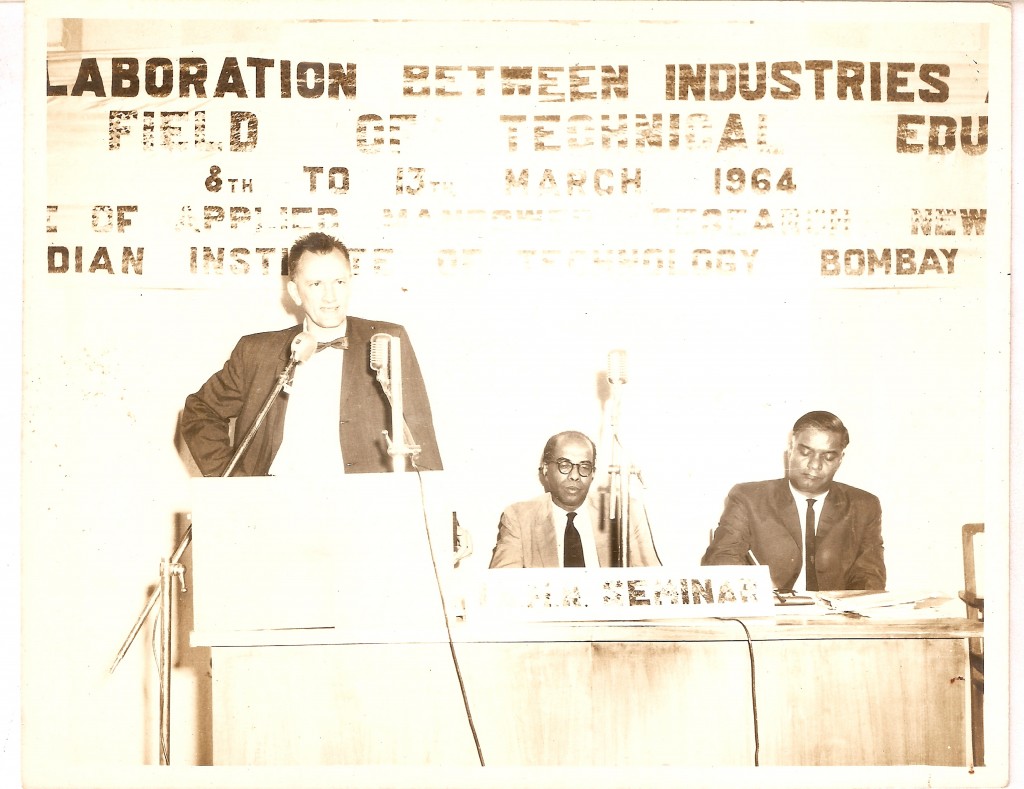
NRK took up the position of Deputy Director in 1960. During this initial phase in the history of the Institute, power was centred on three key personalities namely the Director, the Deputy Director and the Registrar. Among the trio, it was Prof. Kamath who held the centre stage as the Deputy Director. At this stage there were no established administrative processes or an elaborate administrative structure. With a skeletal academic staff for support, he undertook the yeoman task of setting up the framework and processes to streamline the running of academic programmes. Together with Prof Kelkar, he was credited for drafting the Institute’s earliest academic offeringsand considered the ‘father of all academic things’ who strode the Institute corridors with the ‘rules on his tongue’. When JEE was initiated in 1963, it was Prof. Kamath who undertook the responsibility of conducting the examination.
Prof Kelkar also shared that “during the last 4 years of his [NRK’s] career in IIT Bombay I had the privilege of having him as my colleague who willingly shared my responsibilities with unusual understanding and ability informed with a sense of loyalty. The effortless ease with which he managed to satisfy both academic as well as administrative needs is a rare achievement indeed.”
Some more light on NRK’s administrative contributions can be gleaned from Prof S P Sukhatme’s recollections of that period. “As the senior most faculty member in the Institute, Prof Kamath was instrumental in developing the first curriculum and syllabus and also the first set of rules and regulations for the academic programmes. With minor modifications these were in force till the early seventies when Prof Kelkar returned as director after his long stint at IIT Kanpur. He was keen on changing the curriculum by increasing the science content and the humanities and social science content in the curriculum. NRK was not too keen on these changes. However he did not want to be seen as opposing them because of his longstanding relationship and respect for Prof. Kelkar. I was a member of both the Rules Committee as well as the Curriculum Committee set up by the Senate for the purpose and I remember well Prof Kamath’s opposition which resulted in some angry exchanges in the Senate.
It is difficult for anyone to see the structure that they have created being removed and that too so rapidly. In hindsight I understand his reaction much better”.
Though, as an administrator, NRK’s focus was on academic matters, his influence went beyond to embrace faculty affairs. In those early years there was no formal mechanism for faculty mentoring, and NRK often assumed the role of a mentor to many young faculty members eager to make a mark in the academic scene in the campus. Prof Sukhatme remembers NRK’s own contribution to his life thus “When I joined in 1965 I was 27 to NRK’s 51. It was a relationship of a mentor and an adviser who guided but never imposed his will on me. I addressed him as Prof Kamath or ‘sir’ and he followed the British practice and addressed me by my surname alone. Sometimes if he wanted to be mischievous he called me a yankee because of my long stay in the USA.”
Not all teachers can be educators. But a select few who achieve that status do so because they leave a permanent impression as mentors who inspired. In NRK’s case the ranks of those who he influenced encompassed not just his students but also his colleagues.
NRK’s colleague, Prof P K Kelkar, pointed out while writing in the 60th Anniversary Commemoration Volume printed by NRK’s students: “His grounding on the fundamentals of science and his analytical ability was such that no one could get away with a half-baked scientific or technological idea if he made the mistake of presenting it to him”. At the same time Prof Kelkar was also quick to point out that NRK had an unusual dialectical skill and “for many of us he was a kind of a trying ground for all sorts of wild ideas”.
Prof S L Narayanamurthy remembers his contribution in IIT Bombay’s history book Monastery, Sanctuary, Laboratory- 50 years of IIT Bombay for this similar ability to provoke. “He made many of us better teachers than we would have otherwise been, if he had not been asking all the hard questions. Because of him we knew the limits of so called knowledge, how much more we needed to learn, and that became a huge challenge. He would throw hundreds of questions at us… it sent you scurrying and looking around for answers…the provocation was what made him stand out”.
A dry recording of historical facts cannot compare with the heartfelt narratives of those who lived and worked with NRK and the best character sketch came from Prof Sukhatme who drew a vivid picture of him with these words: “Picture for a moment a person with a wide all-encompassing knowledge of the chemical industry in India and extensive familiarity with diverse aspects of chemical technology. Imagine a person well versed in the history of Science and Technology. Add to these facts an individual with an unmatched ability to speak and write English well and you have the picture of Prof N R Kamath before you”.
It stands to reason then why countless generations of his students, whether it be from IIT Bombay or UDCT, remember his contributions with affection and gratitude.
Dilip Dahanukar (B. Tech. 1964) described him as a ‘wonderful orator who held the class captive,’ while Dr A L Ravimohan (B Tech. 1967) lauded his ‘inimitable style of debunking all that was not from the real world outside’. Dr Arun Dravid (B. Tech. 1966) writes of him as an ‘inspiration, a motivator as much as a knowledgeable teacher and an encyclopaedic store house of information in his field’. He goes on to write “when it came to polymers, resins, polymer properties, processing technology and its applications, NRK’s authority and mastery was unparalleled. He always left the class spellbound and in awe of his elephantine memory when he rattled off processing steps in the production of one or other of the polymers he was discussing and their applications.”
His student at UDCT, M M Sharma, remembers that he was the only student in his class of 18 who after his B. Chem. Engg degree did not give a job interview as he was determined to pursue research.
“I remember mastering the courage and decided to barge into the room of the formidable NRK. I have a vivid recollection of his uncanny knack to pose uncomfortable questions”. To his chagrin M M Sharma discovered that Prof Kamath was not so favourably disposed towards his chosen field of research – Thermodynamics. So imagine his delight and mystification when he decided to accept him as a Ph D student.
On his retirement, the 1974 issue of Technik describes Prof Kamath: “Prof N R Kamath was known to students as an iconoclast with a steady store of pointed jokes and covert winks. As Head of Chemical Engineering his name became synonymous with the department. As Deputy Director (Academic) he was considered sympathetic towards students in academic deep waters which ensured a steady stream of supplicants to his door”.
Stories abound about NRK’s cryptic and dry sense of humour. From the early years at UDCT, G P Kane recounts an encounter in their Tea Club when NRK described a common well-known personality as someone who speaks “English, Spanish, Polish, Yiddish, Rubbish – with equal ease”.
His student Arun Dravid points out “NRK’s lectures were a joy to attend. He would punctuate the lectures with amazing wit and had a subtle sense of humour. Contemporary politics was his favourite topic to take occasional pot shots at and make the class burst into laughter. For some weird reason he would call fellow chemical engineers ‘comical engineers’.
Prof Sukhatme shared an anecdote involving a hilarious but an unforgettable lesson in the use of appropriate words while speaking in English. It was a day like any other day of the month of May in Bombay (It was Bombay those days ). It was hot and humid. At five minutes to two in the afternoon I was rushing towards the Mechanical Engineering department. There was a seminar at two o’clock and I knew Prof Kamath was coming. He was a stickler for punctuality and I was anxious to reach in time. By coincidence I met him under the arch… I greeted him, “it is hot” I said and “I am sweating.” He looked at me and smiled “Sukhatme,” he said, “Horses sweat, gentlemen perspire”.
In fact while recreating his life through our research, the picture that emerged was of a man who was a natural iconoclast blessed with both clarity of thought and speech. His sharp tongue was often softened with a touch of humour but it was also deployed to pummel the indiscriminate that had no use for either the bland conservatives or the pure technique mongers. He was principled as only a teacher should be – one whose own life was a study in leadership by example.
He always lived in his small apartment on a busy and noisy part of Sion. He seldom drove his car to the campus. He was always dressed in a jacket and a tie whether in the classroom or in his office as Deputy Director. He was a stickler for punctuality. He usually came to the class from the main building walking the long corridor to the classroom at the department building. He timed his walk perfectly to enter the class on the dot at the start time.
Arun Dravid mentions “Despite the heart breaking loss of his PhD work during World War II, he never sounded sorry or bitter about it. There was an inner strength and quiet character in both him and his wife Ruzena. It is not that they did not have challenges, pain or sorrows, the most profound of which must have been their childlessness in their long and loving marriage, but they had the strength of character not to show their inner sorrows to anyone”.
Niranjan Bhat (B.Tech. 1971) shared an anecdote from sometime in Dec 1971, during the Indo-Pak war. “NRK and I walked through the corridor from the Chemical Engineering Department to the Main Building, with NRK giving me his take on the outcome of the War. He was at that time deputising for Prof Kelkar, then Director at IIT Bombay who was away. When we entered the Diro’s chambers, NRK took a seat on one of the visitor’s chairs. I was surprised and took a seat in another chair next to him. Sensing my confusion, he said I am only the Officiating Director, I do not consider it appropriate to sit in his Chair”.
Pramod Phadke (B. Tech.1967) recounts another incident which highlights the sort of man Prof Kamath was. “As the Deputy Director NRK was insistent that the Institute bus should be free for students and staff members. Diro Brig Bose opposed and as a result, we used to pay 10 paise for travelling from Vikhroli station to the campus. The bus terminus was just behind Lecture Theatre, presently, S J Mehta School of Management stands at that very place.As a highly principled man, NRK stopped using the Institute bus permanently! He used to take a bus from Sion to Agra Road point where the (hilly) road to Powai originates. He used to walk from there up to the department. He used to doggedly refuse lifts from colleagues and others”.
Prof. Kamath passed away in 1983 during a short visit to Czechoslovakia with his wife Ruzena. She continued to live in India in their home in Sion till her own demise many years later. The life story of NRK would be incomplete without acknowledging the invaluable contribution of Mrs Kamath and the decisive role she had played in shaping her husband’s career. Prof Kelkar mentions “Her intuitive feel and idealism had added a dimension to his intellectual approach and realism. Prof Kamath’s academic world therefore expanded to include something of the artist’s world as well as the world of men of action. I am almost tempted to declare them as joint winners”.
When he retired in 1974, in an interview with his students, NRK has left behind these unforgettable words “I do not teach. I am not a teacher. I am not qualified to be a teacher. I am not even competent to be a teacher. I always said that I am an educator. Anyone who would like to be educated, I will help. Anyone who would like to learn, I will help by guiding them”.
We are reminded of the words of the great George Bernard Shaw: “I’m not a teacher: only a fellow traveller of whom you asked the way. I pointed ahead—ahead of myself as well as you.” The only fitting epitaph we could think of for this great educator.
Note: We have compiled this history of Prof N R Kamath from the following sources.
- Monastery, Sanctuary, Laboratory – 50 years of IIT Bombay. Macmillan, India, 2008 pgs- 286-287
- Voice of GSB, Vol 6 issue, 3, October- December, 2012, pg 22
- K G Kudva: Prof Kamath- A Life Sketch, Prof N R Kamath, 60th Anniversary Commemoration Volume, 8th Sept. 1974, Pg 15
- G P Kane: Prof N R Kamath – reminiscences, 60th Anniversary Commemoration Volume, 8th Sept. 1974, Pg 32-33
- The Kamaths – A close up – 60th Anniversary Commemoration Volume, 8th Sept. 1974, Pg 19-24
- Message From P K Kelkar, Former Director, IIT Bombay – Chemical Weekly, May 6, 2014,pg 20
- K P Madhavan: NRK-Memoir of a Teacher
- Arun Dravid: Tallest among the Tall, Chemical Weekly, May 6, 2014,pg 194
- S P Sukhatme: Recollections from a distant past, Chemical Weekly, May 6, 2014,pg 19
- M M Sharma: My first research Guru, Chemical Weekly, May 6, 2014,pg 197
- We are also grateful to Niranjan Bhat (B.Tech. 1971) without whose persistent digging for the research and content this piece would have been thin indeed. He also shared some emails from alumni from his personal communication.
- We are indeed most grateful to Dr S G Bhat of Sion, Mumbai for the priceless pictures of NRK which are being reproduced together first time ever anywhere. Dr S G Bhat has donated to IIT Bombay the 60th Anniversary Commemoration Volume and other documents which provided a great deal of insight into NRK.
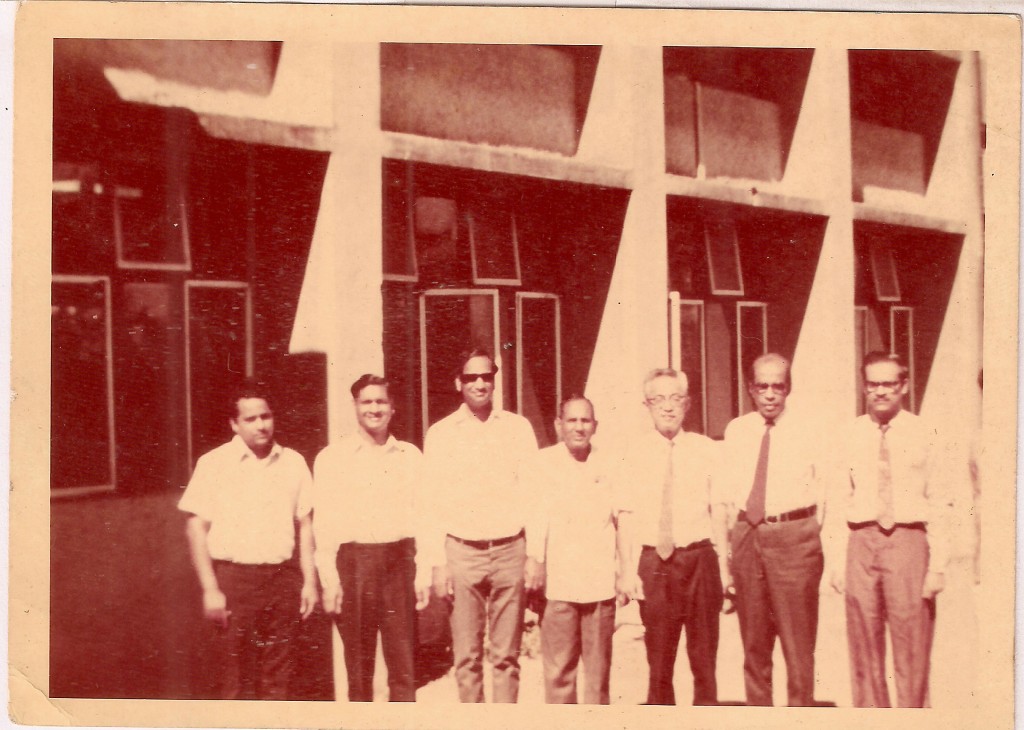
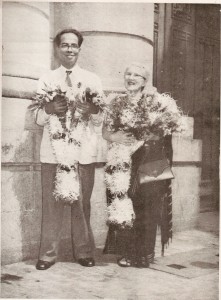

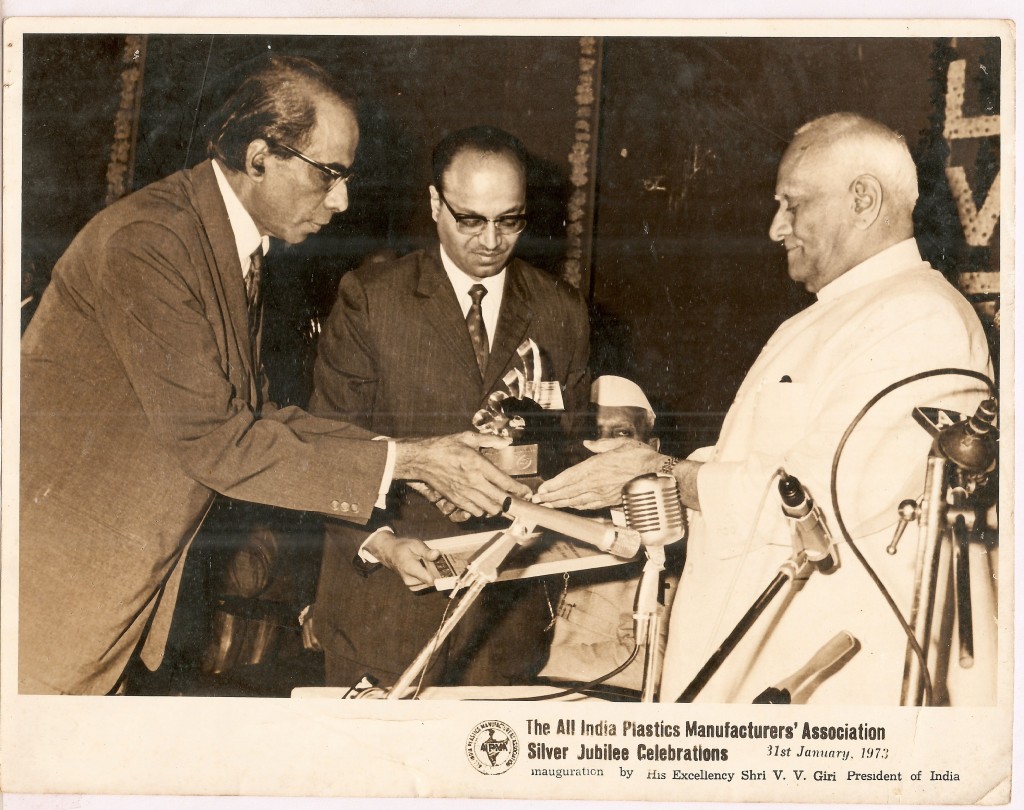
2 comments
Really nice and inspiring
Stirred old memories on the campus. Nrk sir taught us Cellulose Technology.